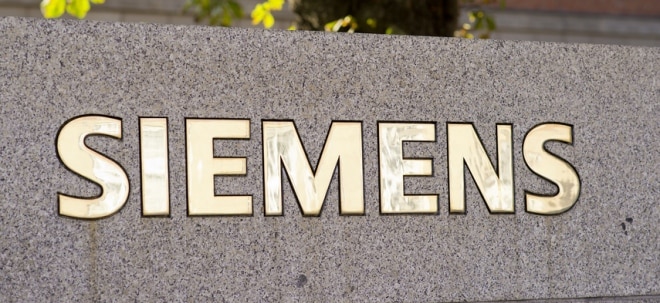Kellogg School of Management Launches Northwestern Innovation Institute with $25M gift
Gift from Northwestern University trustee Pin Ni and Future Wanxiang Foundation establishes new research institute assessing the potential impact of innovation
EVANSTON, Ill., Feb. 13, 2025 /PRNewswire/ -- Northwestern University and the Kellogg School of Management today announced a new research institute examining how innovation occurs across science, technology and business. Building on work already underway at Kellogg, the institute will establish a new way to identify and increase opportunities for groundbreaking research coming out of organizations.
Kellogg will lead the Northwestern Innovation Institute (NI Institute), established by a transformative $25 million gift from the Future Wanxiang Foundation. Focusing initially on universities, the NI Institute will use big data analytics and artificial intelligence to aggregate, integrate and analyze diverse datasets on inventions, patents, licenses, revenues, grants and publications from institutions around the world. These data will allow for a deep understanding of how innovation works and how breakthroughs happen, as well as the development of predictive models that enable leaders to increase efficiency and pinpoint new opportunities for innovation. Through this work, the institute aims to maximize research outcomes, find untapped innovation, partnership and growth opportunities, and guide investments to the people, ideas and institutions that are most likely to lead to impactful advances.
"The NI Institute is the next frontier in advancing research that has real world impact," said Kellogg Dean Francesca Cornelli. "This incredible gift from Pin Ni and the Future Wanxiang Foundation will help unlock the full power of innovation at institutions around the world, accelerating breakthroughs that drive economic growth and improve lives."
"During nearly a decade of service to Northwestern's Board of Trustees, Pin Ni has been a valuable advocate for innovation and strategic growth," University President Michael Schill said. "Through this gift to establish the NI Institute, the Future Wanxiang Foundation advances Northwestern's research reputation as an international leader in a distinct and exciting way. We are grateful for their generosity."
Research universities and institutions produce some of the world's most fundamental knowledge and innovations. However, the ability to assess and predict which research ideas and investments will translate into successful applications remains elusive. The NI Institute addresses this gap by leveraging cutting-edge artificial intelligence tools and novel large-scale databases that capture the entire landscape of research and innovation activity, both at the university and globally. It builds on Northwestern's thought leadership in the science of science and aims to create new ways to understand and predict innovation activities and progress while identifying new opportunities for innovation and obstacles that hinder progress.
"For the past century, innovation has fueled remarkable human progress," said Dashun Wang, Kellogg Chair of Technology and professor of management and organizations at Kellogg. "In the century ahead, the impact of innovation will only grow. If we can make R&D even five percent more efficient, the returns for society would be immense—in longer, healthier and happier lives for everyone around the world."
The NI Institute will serve as the intellectual home that brings together pioneering researchers and the leaders, policymakers and funders who turn their insights into action. Dashun Wang will serve as faculty director of the NI Institute, and Alicia Loffler, adjunct professor of strategy at Kellogg and founding executive director of Northwestern's Innovation and New Ventures Office, will serve as executive director. The NI Institute will hold a symposium to convene leading experts in the field of innovation, bringing together distinguished researchers from industry and academia, as well as university leaders, funders and policymakers. To recognize outstanding contributions, the institute will also award an innovation prize.
"Investing in innovation is the key to unlocking new possibilities," said Pin Ni, president of Wanxiang America Corporation. "The Northwestern Innovation Institute will be more than just advancing technology; it will lead to meaningful change that impacts lives and communities. I am proud to support this next step in innovation at Northwestern and Kellogg."
The NI Institute will collaborate with and build on other centers and institutes' work as part of Kellogg and Northwestern's innovation ecosystem, including the Ryan Institute on Complexity and the Center for Science of Science and Innovation, which has pioneered this novel approach to measuring and assessing the landscape of innovation and entrepreneurship within Northwestern, laying the groundwork for the broader work of the NI Institute. This collaboration will amplify the impact of the institutes' efforts, placing Northwestern and Kellogg at the forefront of solving increasingly complex societal, business and market challenges by harnessing the power of big data and artificial intelligence.
The gift follows a $20 milliongrant from the National Science Foundation, awarded as a collaboration between Kellogg and Northwestern's McCormick School of Engineering and Applied Science. Led by Dashun Wang as the Principal Investigator, with co-investigators Ben Jones, Alicia Loffler and Lauren Eskreis-Winkler at Kellogg and Jian Cao, Mark Hersam, Jennifer Dunn, Julius Lucks and Danielle Tullman-Ercek at McCormick, the grant focuses on advancing technology outcomes. It will help grow the network of partner institutions and develop more extensive datasets and models to understand the lifecycle of the research and innovation ecosystem.
Media contact: Mary Naset, mary.naset@kellogg.northwestern.edu
![]() View original content to download multimedia:https://www.prnewswire.com/news-releases/kellogg-school-of-management-launches-northwestern-innovation-institute-with-25m-gift-302376135.html
View original content to download multimedia:https://www.prnewswire.com/news-releases/kellogg-school-of-management-launches-northwestern-innovation-institute-with-25m-gift-302376135.html
SOURCE Kellogg School of Management


